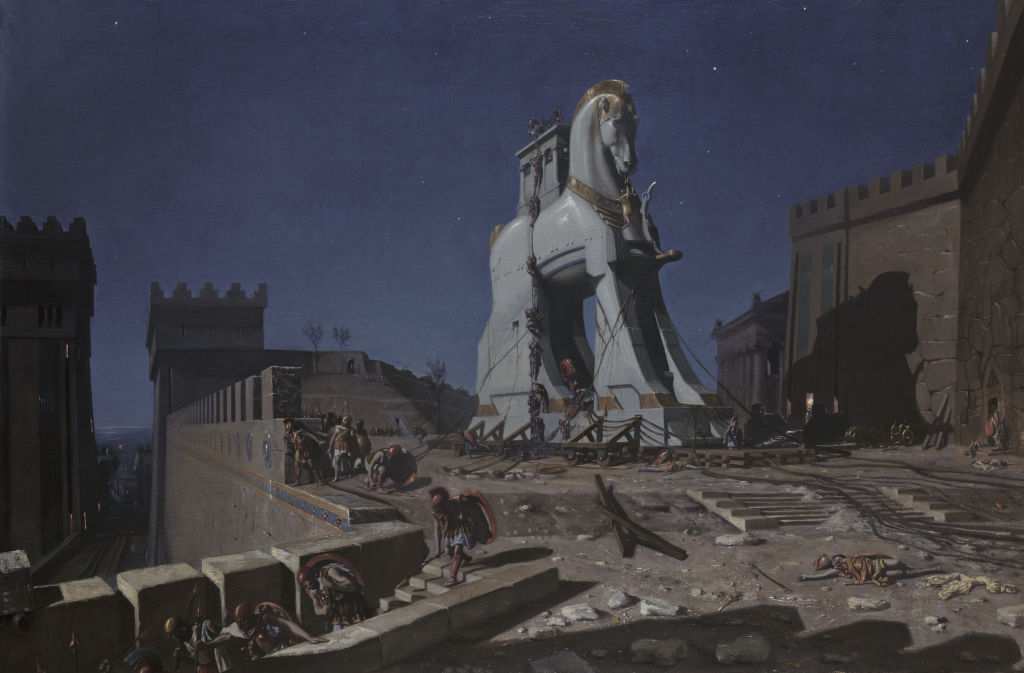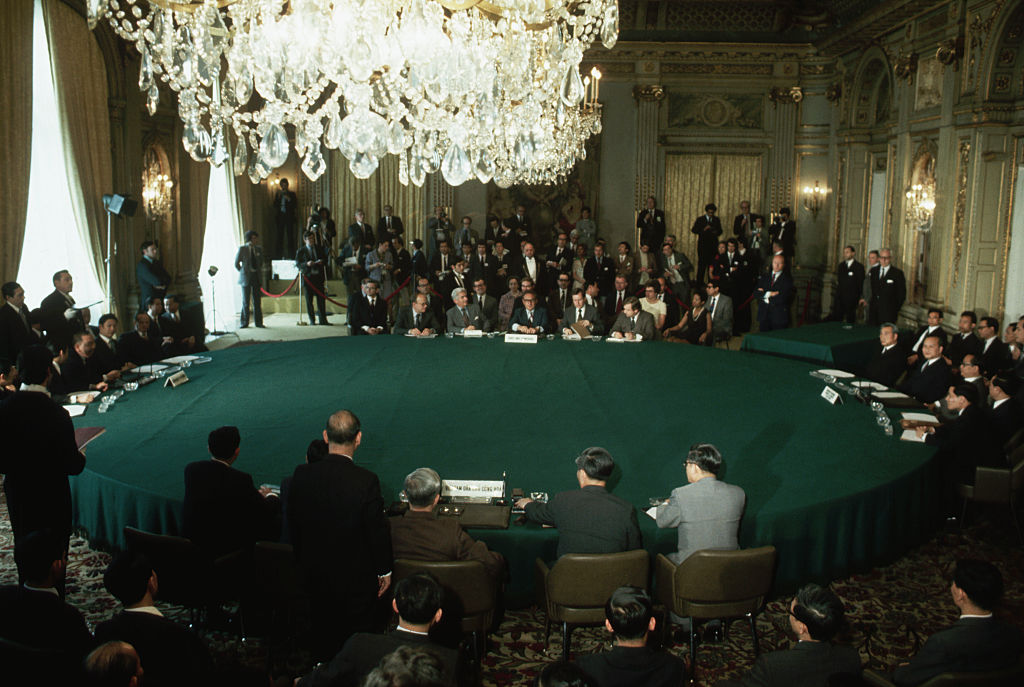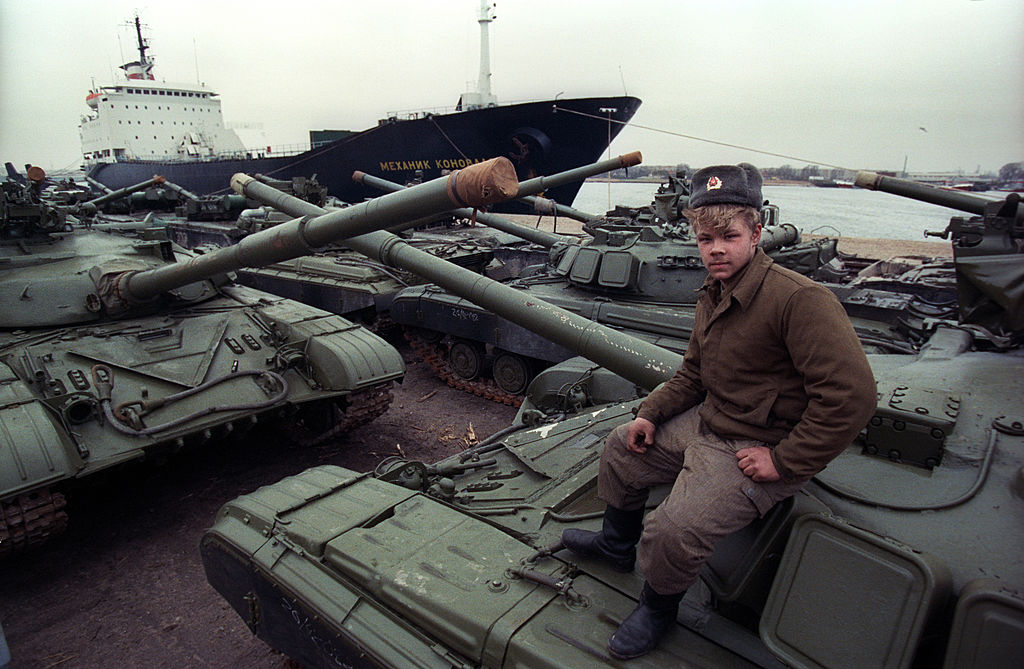There is an old quip by Voltaire about the Holy Roman Empire, pointing out that it was nothing of the sort: neither holy, nor Roman, nor an empire. That medieval construct, begun by Charlemagne and ended by Napoleon, centred on the German heartland of Europe and was technically more like an association of separate realms with an “emperor” elected by a college of monarchs, than an imperial state.
There was certainly nothing holy about the empire’s existence, purpose or activities, and even the papal anointment of the emperor-elect was dispensed with after a few centuries.
But in the complicated world of medieval and early-modern Europe, with its layered web of conventions, hereditary claims and loyalties, social and religious rules and expectations, myth-making played a pivotal role. It often provided the foundation for the prestige and legitimacy that supported the real-world power of pre-nation-state rulers.
History, however, rolled on and the myth of the Holy Roman Empire became unsustainable in the modern age of the French Revolution and emergent nationalism. In 1806 a real emperor, Napoleon, with actual military power behind him, decided to formally remove this hollowed-out relic of the past from the political map of Europe. It wasn’t difficult and hardly anyone noticed any difference or impact on continental statecraft.
There are echoes of this story in our present day. The geopolitics of our time are in many ways framed by the idea of a rules-based international order (RBIO here, in short), which functions as the foundational notion and organising principle of state action in global affairs – at least for Western countries. But how much of this is a myth?
Similarly to the Holy Roman Empire, the RBIO is neither based on rules, nor is it international in any kind of a worldwide sense, nor particularly orderly. Yet this artificial idea is being kept on life-support by large swathes of elite opinion – particularly in politics and academia – deeply rooted in the tenets of liberal internationalism with its emphasis on the essential role of “global institutions”. It is the warped view, the wishful thinking, of Davos Man, increasingly divorced from any sense of reality.
The post-1945 settlement between the victorious United Nations powers does stand out as a special case in the history of man, through the body of international law and institutions that it spawned in the years immediately following the defeat of Nazi Germany.
There wasn’t anything fundamentally new in this: the idea of international law as such, applicable to questions of war and peace between sovereign countries, goes back at least to Hugo Grotius in the early 17th century. Similarly, the Concert of Europe created at the Congress of Vienna in 1815 for the management of the post-Napoleonic “order” in many ways foreshadowed the UN Security Council’s role (and was more effective to boot).
What was new, however, was the sheer extent and the complexity of the legal and bureaucratic dimension of the UN apparatus and its associated conventions. This vast enterprise has been expanding continuously since inception, together with the reach of its legal instruments to the point where it has arguably become an end in itself.
As a result, the goal of the “rules” is now to maintain the rules themselves, rather than to serve the higher purpose of stability – which, in a classic balance-of-power system would have the rules bend to diplomacy and compromise.
Given the many instances in which international law has been violated in recent decades, including in relation to fundamental questions of war and peace – the Iraq invasion being a case in point, let alone Russia’s aggression against Ukraine – some may even wonder whether these arrangements, such as they are, make a positive contribution to the management of global tensions or, on the contrary, are detrimental to it. Perhaps worse: they may be increasingly irrelevant.
Indeed, in time, the much more detrimental by-product of the legal-institutionalisation of the world-order idea has been the growing illusion that the system is based on rules. The basic fact of organised human experience is that any kind of order (including legal order itself) is fundamentally sustained by the exercise or implicit threat of force. This was perhaps so obvious to the Second World War generation that no provision was made against the possibility of it being later forgotten or confused by the language of lawyers or the imaginings of ideologues and naïve academics.
The hard truth is that the postwar “order” that has been attributed to the blessings of the UN Charter or things like Nuremberg Trial-derived International Human Rights Law has in fact been maintained and protected by something completely different and indeed offensive to liberal sensibilities: sheer US military power.
It has been the US Navy that has maintained freedom of navigation and has secured global trade for decades, for example, not the words of the United Nations Convention on the Law of the Sea (UNCLOS), important though might they be.
It has been the network of US bases around the world, the US military deployments from Germany to Japan, US nuclear weapons and the US-backed security alliances like NATO which have, by and large – with exceptions such as Korea or Ukraine – deterred the outbreak of major wars and preserved a relatively stable global system. It wasn’t some treaty or statute, per se, that achieved that, although such instruments can have considerable political value in the diplomacy that ensues in times of crisis.
A similar state of affairs obtains with respect to the purported “international” or “global” aspect of the RBIO, as well. The post-1945 order, in its full political sense, has never been universally accepted, let alone universally observed. During the Cold War the international system was split in three, between the US-led “free world”, the Soviet-led communist bloc plus other revolutionary regimes, and the so-called non-aligned nations of the “third world”.
Even in the short post-Cold War “unipolar moment” of American primacy there were plenty of rogue states, conflict areas and blindspots on the geopolitical map that clearly sat outside the reach of the RBIO.
Then, from 9/11 onwards, the increasing power of openly revisionist states like Russia and China accompanied the world’s gradual move towards multipolarity, mounting an ever-sharper challenge to the notion an internationally-observed RBIO.
Finally, the suggestion that the global system after the Second World War was defined by “order” in the sense of a stable structure with orderly participants conforming to set roles, can hardly be made to fit the facts. In reality, every decade since the 1950s has seen varying levels and forms of political upheavals, inter-state tensions (sometimes nuclear), internal conflicts and terrorism, and all-out wars. This was true even at the high-point of US power, in the 1990s, which witnessed plenty of fighting and murder from Chechnya to Yugoslavia, Rwanda to Somalia and beyond.
It is partly due to blind faith in the RBIO myth that the Western world failed to understand Russia’s willingness to invade Ukraine in full and open violation of the UN Charter. It was assumed that the law provided sufficient deterrence against such an egregious act, and that Putin would not dare challenge the order in this brutal way.
In other words, the belief in the existence of a rules-based international order has long locked the Western mind into a frame of thinking that confused law with power, and it has left the free world open to abuse by the first ruthless ruler willing to break the RBIO spell. We must now recalibrate our thinking and be prepared to respond in kind if challenged in this way again.






Putin may not think invading Ukraine was a mistake. Here’s why